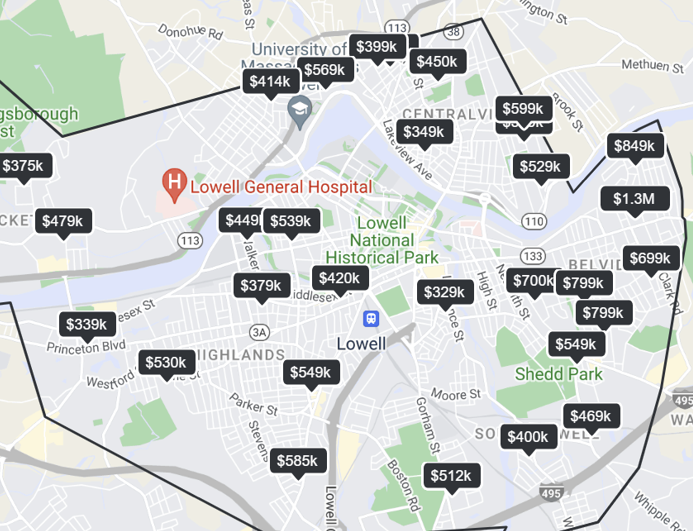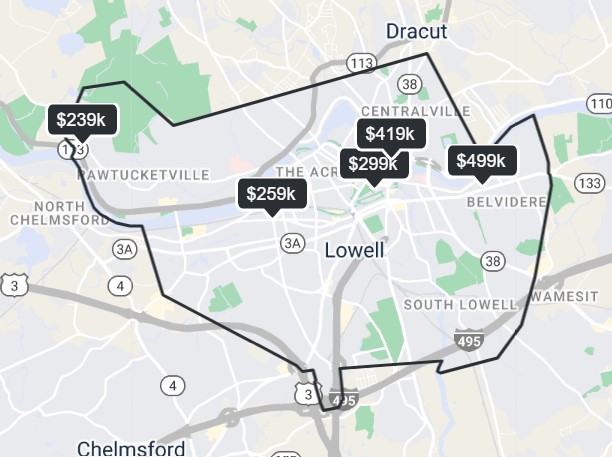1. Homelessness Is Now a Public Health Crisis – “But what does that mean?”
This was the question posed by Maura Fitzpatrick, our director of Homelessness Initiatives after the Council voted 10-0 in support of the following motion:
C. Rourke/C. Robinson/C. Scott/C. Yem – Req. City Of Lowell Declare Homelessness A Public Health Crisis.
I too was left wondering what, exactly, was being debated and ultimately approved?
Prior to council remarks and the roll-call, several speakers spoke on the topic of homelessness – most were affiliated with various city organizations: Susan Levine – CEO of Lowell Community Health; Karen Frederick – CEO of Community Teamwork; Jay Linnehan – CEO of the Greater Lowell Community Foundation; and Ivana Dauwer – Health Access Program Coordinator at the Coalition for a Better Acre. From the public at-large was, Deborah Belanger, a former city council candidate. In sum, the speakers spoke broadly about the topic of homelessness and the need for more housing in the city.
However, we never really got an explanation as to what the “declaration” strategy is? Legally, what can we do today that we couldn’t do yesterday? Councilor Rourke and Councilor Scott provided a little insight into the thought-process. Councilor Rourke cited similar declarations in Boston and Manchester that were (in part) successful in removing encampments. Councilor Scott stated that she signed on to the motion in the hopes that it may lead to additional resources.
If we should look to Boston, in October of 2021, then-Mayor Kim Janey issued an executive order declaring homelessness a “public health crisis” in the City of Boston. The Boston Public Health Commission also issued a parallel order. A WCVB story at the time reported:
[T]hat city and state authorities will cooperate to develop a centralized system for interventions for those in need of shelter and addiction services. It also suggests that tent encampments will no longer be tolerated, although Janey said enforcement would be used “only as a last resort.”
“These tents have become the site of infectious diseases, sexual assaults, human trafficking, potential overdoses and violence,” Janey said. “We cannot let our most vulnerable residents continue to suffer in these encampments.”
“These existing laws, coupled with the Public Health Emergency, dictate that tents and temporary shelters will no longer be allowed on the public ways in the City of Boston,” her order says. The order also says police will continue to enforce all laws related to drug trafficking, human trafficking, disorderly conduct and trespassing. The city’s public works department will also clean the area and improve road and sidewalk safety.
After Boston’s declaration, the city began clearing the encampments at Massachusetts Avenue and Melnea Cass Boulevard, known as “Mass & Cass.” Perhaps last night’s declaration will provide Lowell some legal cover for future clean-out actions?
At the end of the discussion, Vice Mayor Gitschier advised Ms. Fitzpatrick that she will have to discuss the meaning of the declaration with the City Manager. If she gets a concrete answer, I hope that she or the administration will share it.
1A. Another “Homelessness and the Law” Issue to Ponder…
Continuing with the theme of potential legal challenges when addressing homelessness, I came across an article this week that caught my eye. A group of Phoenix residents and business owners successfully sued their city for failing to address homeless encampments.
They claimed the city had allowed its public spaces to violate its own public nuisance laws, with unsanitary conditions, drug use, violence and property crimes, fire hazards and blocked rights of way. A judge in March ruled in their favor, giving the city a few months to eliminate the nuisance conditions, records show. As per the article:
The legal strategy may offer a template to anyone who lives or works near large homeless encampments, said Ilan Wurman, a lawyer for the Phoenix plaintiffs and an associate law professor at Arizona State University.
“We basically showed a proof of concept to use the courts to force cities’ hands to actually do something about the humanitarian aspect of this crisis,” Wurman said. “We hope other businesses, property owners and homeowners take up this fight in other jurisdictions where there are massive homeless encampments.”
But using such a lawsuit to clear an encampment like the Zone is an oversimplified tactic that not only doesn’t end unsheltered homelessness – but also increases “invisible homelessness,” National Alliance to End Homelessness CEO Ann Oliva said.
“Of course we’re worried that this is going to be picked up as a tactic by other communities,” she said. “I hope that it’s not a template for how other communities want to address this issue because we know that the only way to actually address this issue and homelessness is affordable housing and the services that people want and need in order to get housing.”

When we hear of homeless legal issues, it’s almost always in the context of the constitutional rights of the unhoused. The Phoenix case flips the script a bit – what about the rights of the average, housed citizen? This issue came up a bit last night as well as in meetings past. I haven’t done my homework on this legal topic, other than reading one article – but I got the wheels spinning as to what other legal avenues could be open to residents?
It’s one thing to deprive the homeless of rights. It’s quite another to seemingly grant them extra rights or trample others’ rights to avoid rocking the boat. One could argue that Lowell residents do not enjoy equal enforcement of laws. For example, would it be possible to bring a class action on behalf of anyone in the city who had to pull a building permit? Or how about anyone who ever received a fine for improper waste removal? What about businesses that have committed EPA violations? It seems that one class of citizens has to abide by these laws while others do not.
Or, how about a challenge under the Massachusetts Civil Rights Act? M.G.L. c. 12, s. 11H-11J, protects all residents and visitors to Massachusetts against threats and interference with their civil rights. The MCRA protects, for example, the right to use public parks, walk on public streets, attend school, live peacefully in your home. At what point would the unhoused population interfere with those rights? If you were to ask a downtown business owner, I would bet they would argue that line has already been crossed.
There are obvious reasons why the laws are not equally applied. And I’m not sure that any type of crack-down will do anything other than cause misery – unless other services are put into place. However, I think I read somewhere that the social compact is broken in this regard. That’s an idea worth chewing on as we try to contextualize what’s proper and fair in addressing this issue. If we don’t, we could alienate 115,000 residents to the favor of about 100.
2. Homebuying Assistance
There was an informative motion response related to two motions dating back to February and March of this year:
March 14, 2023 – C. Noun –Req. City Mgr. With A Report Concerning The Number of Individuals Using City Programs To Aid Residents In Housing/Purchasing Homes In The City; Said Report Should Include Ways The City Can Better Advertise Such Programs.
&
February 7, 2023 – C. Rourke Req. City Mgr. Have The Appropriate City Department Meet With The Merrimack Valley Housing Partnership To Explore Current Homebuyer Assistance Programs
Offered Trough MVHP To See If There Can Be An Increase In Access An Opportunities For Potential First-Time Home Buyers In The City
Cathy Mercado, the Executive Director of the Merrimack Valley Housing Partnership was present to provide details on the programming and initiatives available to prospective homebuyers. The report, identified some challenges currently faced by homebuyers. For example,
Despite exponential rent increases, homeownership is increasingly out of reach for median-income residents. In Middlesex County, the median value of owner-occupied homes is more than $560,000 – about 1.4 times the state median.
Lowell is the Merrimack Valley’s largest city. The average single-family home in the city is $474,000, the average townhouse/condo is $274,900, and the average two-family home is $574,000. Real-estate professionals say the market will continue to increase by 16% in the next few years
The report didn’t make it explicit, but the implication is clearly there: the biggest challenge facing homebuyers isn’t a lack of classes and seminars. It’s that there aren’t many homes to buy. Moreover, what homes are available are stupid expensive. If you’re a young family looking for a single-family in Lowell, here’s what you are looking at right now:

How about a condo?

If you’re in your “golden years” and maybe want to down-size, where are you going? I grew up in Centralville. There are currently three houses for sale up in God’s Country right now: $600K, $530K and $400K. I doubt my family could have afforded those prices. If Lowell families can’t afford Lowell, what does that do to “neighborhood character?” What stress do these prices place on the rental market? Where are we going with the status quo?
That family looking for a house will move to New Hampshire. If they bite the bullet and take on the mortgage, will they have extra money for dining out downtown?
This housing market is not an act of God. This is the result of policy decisions. There is not enough supply to meet demand because the supply is kept artificially low due to policies enacted at the local and hyper-local levels. Keep this in mind next time we have a chance to tinker with our zoning laws.
3. The Rest
A. Councilor Gitschier, as Vice Mayor, ran the meeting as Mayor Chau made a (politically neutral?) trip to Cambodia with a delegation in support of the USA Cambodia Sports Association (UCSA) and their participation in the Southeast Asian Games (SEA GAMES) representing Cambodia.
You better believe that the “5 Minute Rule” was followed. I’m not complaining.
B. Some help may be on the way relative to the $38 million COVID-related construction cost-overruns at the high school. Senator Kennedy successfully added funding to the Senate budget that would cover $24 million or 63% of this cost.
C. A revised and more-detailed motion response on improvements made to city ball fields this Spring. The fields I’ve seen are looking much much better right now. No doubt thanks to $140K spent on a private contractor. Throwing money at things works. At least in the short term.
D. A long update on the computer security issue that the city has been dealing with. I don’t need e-mails from computer types telling me I’m an idiot for trying to recap it, so I won’t.














